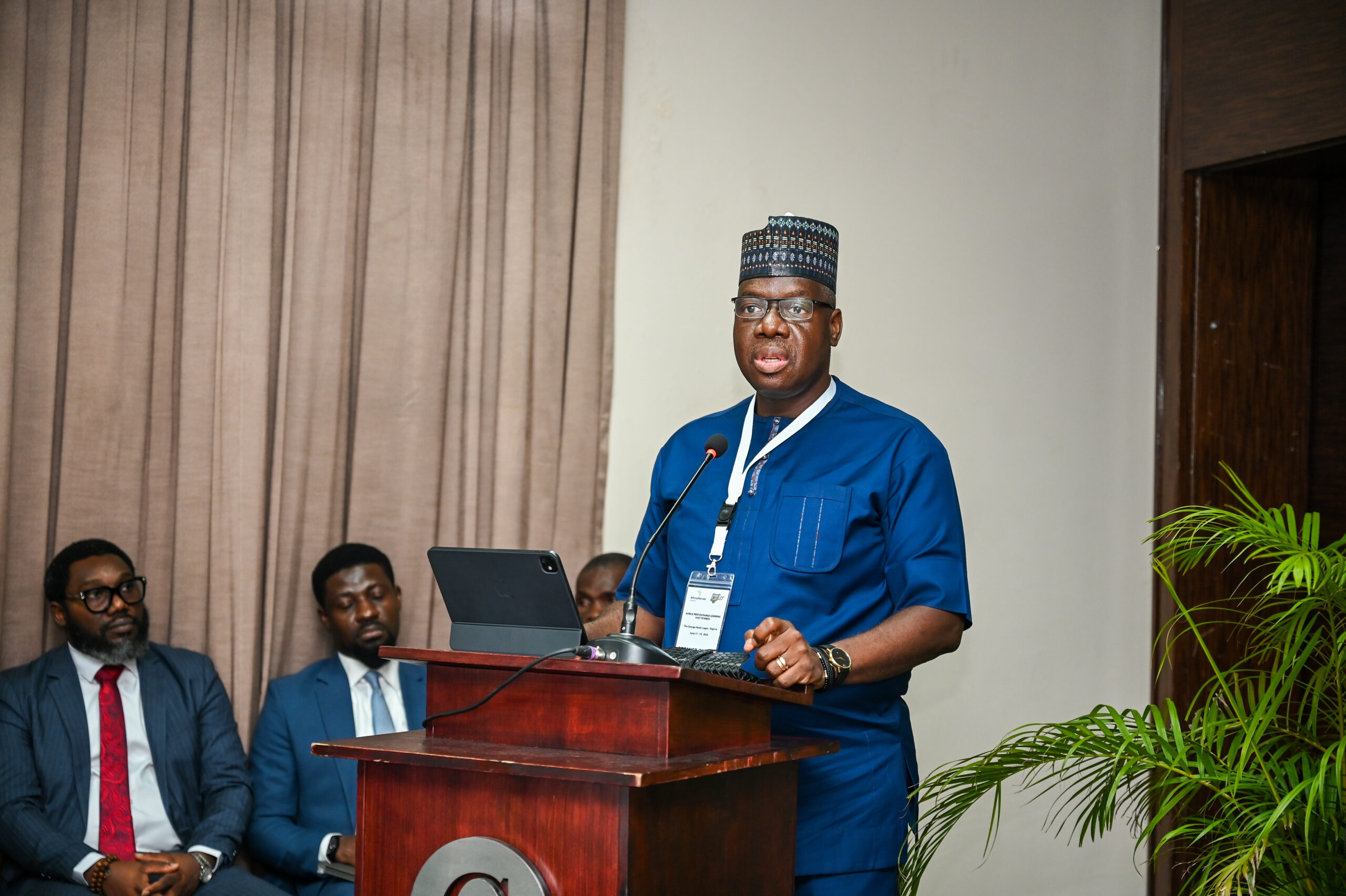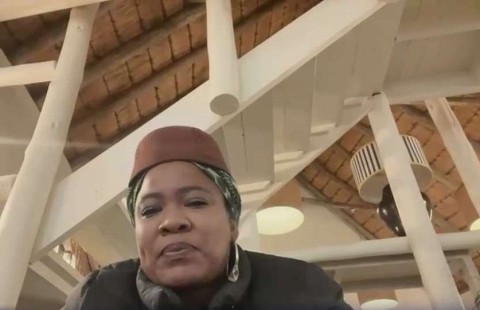It's About Connection: Kerry Ryan interviews Julianne Pachico, Emily Tesh, and Hanna Thomas Uose
Following my conversation with literary legends Pat Cadigan and Nicola Griffith who have been pushing boundaries and winning awards since the 1990s—I was curious to speak to the younger generation of women writing SFF today. I recently devoured brilliant spec fic from Emily Tesh, Hanna Thomas Uose and Julianne Pachico, and so was thrilled to get their thoughts on gender, the creative process and the increasing fluidity of genre.
Hanna Thomas Uose’s debut novel Who Wants to Live Forever (Brazen; March 2025) explores the ramifications of a revolutionary drug,Yareta, which halts biological aging. The narrative centres on Yuki and Sam, a couple in their twenties whose relationship is tested when Sam opts for immortality, choosing to live forever rather than grow old with Yuki. Julianne Pachico's third novel Jungle House (Serpent’s Tail; 2023) is set in a future where artificial intelligence has become deeply integrated into daily life. The story follows Lena, a young woman raised in an isolated jungle estate by an AI caretaker known as Mother. Emily Tesh’s novel Some Desperate Glory (Tordotcom; 2023) won the Hugo Award in 2024, and she is also the author of the Greenhollow Duology, and The Incandescent, a fantasy novel set in a contemporary British boarding school.
Kerry Ryan: Pat Cadigan and Nicola Griffith began writing at a time when the cultural climate wasn’t just discouraging, it was actively hostile. How would you describe the landscape now, as women writers publishing spec fiction in the 2020s?
 Julianne Pachico: You could argue that more women are reading, writing, working in publishing and that women have a real presence, but I don’t think presence automatically equals power or voice. Just because there are more women in my workshops doesn’t mean they’re claiming space in the same way men have. This question of authority—of asking for things, of taking up space—has become more pressing for me, especially since becoming a mother. Among my peers—new mothers, progressive, liberal, millennial women—I’ve been struck by how often we don’t ask for what we need. And that made me wonder: how long have I been doing that in my career without realising it?
Julianne Pachico: You could argue that more women are reading, writing, working in publishing and that women have a real presence, but I don’t think presence automatically equals power or voice. Just because there are more women in my workshops doesn’t mean they’re claiming space in the same way men have. This question of authority—of asking for things, of taking up space—has become more pressing for me, especially since becoming a mother. Among my peers—new mothers, progressive, liberal, millennial women—I’ve been struck by how often we don’t ask for what we need. And that made me wonder: how long have I been doing that in my career without realising it?
Hanna Thomas Uose: I just rarely come across men in my publishing journey. My whole publishing team was women. My grandmother is 95 and she read my book, and her main comment was about the acknowledgements. She said: You thanked so many women! She couldn’t believe all of these women had been able to help me. It just amazed her. Which really shows the difference between generations and how much has changed. That blew me away. It made me feel really grateful because, in my family line at least, no other woman has had this kind of opportunity for self-expression.
Emily Tesh: I have been very lucky at every turn in my writing career, and I want to emphasise that. I had a very easy time of it right up until I had children but that's not so much the fault of publishing as a career as it's a fault of the entire world and the way it's set up! Few jobs are designed around the needs of someone who also must care for small children.
Publishing is, I think, particularly brutal once you become a mother. Books have to be completed and edited by a certain date no matter what. I wrote my most recent novel while I was seven or eight months pregnant and it was really miserable. I handed it in, had the baby, took one month of maternity leave, and went straight back into edits. Obviously, that’s just how it works being a contractor and would be just as true if I were a plumber. If you can’t do the work in the contract when it’s due, then you’re not going to get paid. And yes, I could have taken time off but then the book would have been delayed another year, and payment delayed another year.
Julianne Pachico: I joke with my husband that we should all write with the confidence of a boomer man writing his memoirs. That energy of: My story matters. Listen to me. You see that in some students—it’s just astonishing confidence. And then I see so many young women writers who are brilliantly talented, but so hard on themselves, so uncertain. Everyone should feel like they have the right to take up space, to express themselves and to tell their story.
Kerry Ryan: Do you think genre distinctions are blurring? That readers are more ‘genre-fluid’ these days? There is less of a distinction between literary fiction and SFF?
Julianne Pachico: I was speaking to a colleague from the University of East Anglia who has been teaching much longer than I have, and he said the biggest shift he’s seen in people’s writing over the last 20 years is a greater comfort with genre. He attributed that to Harry Potter. I mean, even Karl Ove Knausgård is writing genre fiction these days. And Sheila Heti’s latest piece in the New Yorker is almost fairy tale. My book Jungle House is definitely shelved in the literary fiction section. It’s not shelved in science fiction, but it really could be. I think it's up to readers to decide where it belongs.
I’m not a sociologist, but from a personal point of view, as a writer, as a creator, I do think anyone working in the arts is, dare I say, channelling the unconscious of society. We're all just trying to make sense of things, trying to understand. And one thing you could say about the past 20 years is that our lives are extremely mediated by technology. And I think that’s kind of the job of art, right? To engage with those feelings.
 Hanna Thomas Uose: I think lots of literary novels, like those by Kazuo Ishiguro, engage with speculative ideas, but if you’re judged to have a certain status or quality, your work is still classed as literary rather than genre. That makes me wonder what those genre distinctions really mean. There’s this new series of Danish novels called On the Calculation of Volumes. It’s been shortlisted for the International Booker Prize, and I think it’ll probably win. It’s very literary, but the concept is highly speculative, yet no one talks about it as a high-concept speculative novel.
Hanna Thomas Uose: I think lots of literary novels, like those by Kazuo Ishiguro, engage with speculative ideas, but if you’re judged to have a certain status or quality, your work is still classed as literary rather than genre. That makes me wonder what those genre distinctions really mean. There’s this new series of Danish novels called On the Calculation of Volumes. It’s been shortlisted for the International Booker Prize, and I think it’ll probably win. It’s very literary, but the concept is highly speculative, yet no one talks about it as a high-concept speculative novel.
Emily Tesh: I’m not a believer in hard genre boundaries. I think those are often more marketing signals than anything else. But I do find it interesting that there’s been a blossoming of openness to the fantastic. I think maybe a lot of seriously realist literary fiction has already been written. There’s possibly not much space left in the solidly realist mode, so maybe it’s time to try something else for a while—let some ground lie fallow and become fertile again.
I do think a lot of the strict genre categories in SFF are nonsense. For example, faster-than-light travel is pure fantasy since there’s no scientific basis for it. So any sci-fi world based on faster-than-light travel is also pure fantasy. Science fiction as a category is really just a set of aesthetic signals, which I enjoy, but I don’t think they are meaningfully different from signals used elsewhere. The techniques of world-building and creation are the same.
Hanna Thomas Uose: The people who are really enjoying my novel seem to be those who don’t usually read speculative fiction or wouldn’t consider themselves speculative readers. Maybe they read more realist novels but come to Who Wants to Live Forever and think, oh, wow, you can ask really big questions in this kind of book. It’s been really fun to feel like that my novel might be a bit of a gateway into speculative fiction for these kind of readers.
Emily Tesh: A lot of science fiction in the UK is aimed only at male sci-fi readers because there is a belief that soft sci-fi does not sell in the UK. Perhaps it’s a bit of a self-fulfilling prophecy and that because soft sci-fi is believed not to sell here, it’s not stocked by booksellers. It’s viewed as being more of an American genre and so is thought not to interest UK readers, particularly UK female readers.
My science fiction book Some Desperate Glory has incredibly different covers in the US and the UK. The US cover is aimed at a YA crossover female audience, while the UK cover looks like gritty boy’s sci-fi. It needs to look like it could be a “boy book,” but since it has a girl in it, they put some purple on the cover.
Kerry Ryan: What gave you the confidence to start writing and publishing in the first place? What was the motivation?
 Emily Tesh: As a young writer, I was writing fan fiction with a community who were mostly young women. It was the first community I’d ever encountered where the default pronoun was female. This was the early 2000s. You’d go to Reddit and hear, “there are no girls on the Internet,” but go to LiveJournal and it was more like, “there are no boys on LiveJournal.” Being the default in a community makes a huge difference. It’s about intersections of identity and privilege—feeling like your voice is normal and that no one is going to tell you off for talking. That’s a really powerful feeling, especially for a teenager, and I was a teenager when I started. So that community was important to me. The serious science fiction and fantasy community online just didn’t seem like a place for me, then.
Emily Tesh: As a young writer, I was writing fan fiction with a community who were mostly young women. It was the first community I’d ever encountered where the default pronoun was female. This was the early 2000s. You’d go to Reddit and hear, “there are no girls on the Internet,” but go to LiveJournal and it was more like, “there are no boys on LiveJournal.” Being the default in a community makes a huge difference. It’s about intersections of identity and privilege—feeling like your voice is normal and that no one is going to tell you off for talking. That’s a really powerful feeling, especially for a teenager, and I was a teenager when I started. So that community was important to me. The serious science fiction and fantasy community online just didn’t seem like a place for me, then.
But Ancillary Justice by Ann Leckie was a turning point. After that book was published, it felt like science fiction and fantasy might actually be a place for me after all. But definitely writing for fandom was what made me feel free to write in the first place.
Hanna Thomas Uose: Being part of a creative community for marginalised genders like Write like a Grrrl or Lips—the women’s choir—really helped me to take up space. But what’s giving me more confidence now is that my novel is out there in the world and people are responding positively to it. That validation takes away some of the fear and has helped build my confidence to keep going and do more. It’s been really liberating, actually. I’ve realized there’s so much more I want to say and more authentic places to write from, and that’s so exciting. Now that my novel is out there, I feel like I have more permission to explore my voice freely.
Juliane Pachico: I’ve always loved to read—that’s my greatest love. There was this stretch, the first three or four weeks after my son was born, when I couldn’t read. I couldn’t focus. I wasn’t sleeping. And it felt like a kind of death. I thought, Who am I if I’m not reading? That was terrifying. But then, you know, they get a little older and it gets a bit easier. But yes, that’s where my writing comes from: reading. I think of writing as a kind of web, a conversation stretched across time and space. That’s the image I hold onto. Everything you write, even if it’s just scribbled in a notebook, is a response to what you’ve absorbed. You’re part of something bigger.
What I always tell my students is the best thing about reading and writing is that you’re never alone. My mother used to say: As long as you have a good book, you’re never lonely. It’s connection. That’s what it’s about. That’s the motivation. Connection.
Emily, Hanna and Julianne were interviewed separately; their responses have been edited for clarity and presented together. Thank you so much, Emily, Julianne and Hanna!
Editors: Anneke Schwob
Copy Editors: Copy Editing Department.









